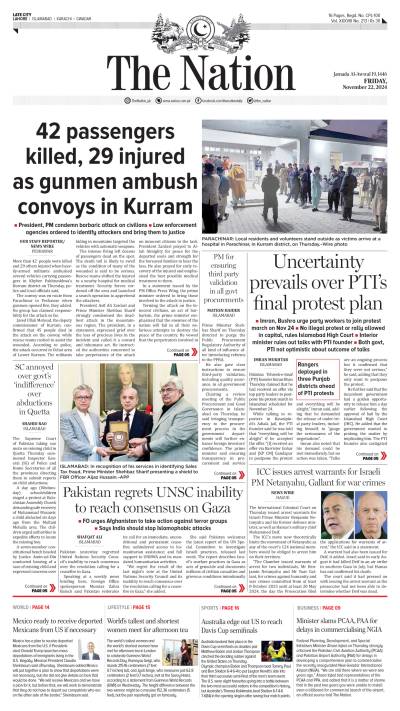Pakistan's Stagnation Raises Alarm: How Internal Challenges Hinder Global Recognition

Islamabad, Pakistan - The country's persistent struggles with inefficiency, corruption, and ineffective governance have hindered its progress towards gaining global recognition. Despite possessing a skilled workforce, abundant resources, and strategic location, Pakistan consistently falls short of expectations.
The problems are deeply ingrained, with widespread corruption, lack of accountability, and systemic inadequacies limiting the country's ability to harness its potential. The corporate world has also resisted changes that could establish a fairer economic framework, while politicians prioritize personal gain over national interests.
Pakistan's struggle to adopt technological advancements is particularly noteworthy. Despite growing youth population, the country remains largely on the sidelines of the Fourth Industrial Revolution, which has led to significant benefits for neighboring countries like India and Bangladesh.
However, there are reasons to be optimistic. Pakistan's IT exports have steadily increased through channels such as freelancing platforms and startups. To remain competitive in the global digital economy, governments must foster public-private partnerships, attract foreign investment, and incentivize domestic businesses to invest in research and development.
To address its internal challenges and reclaim its rightful place on the global stage, Pakistan needs to undertake structural reforms and national revitalisation. This includes restructuring institutions for effective governance, enhancing the business climate, adopting AI and technology for economic development, emphasizing human capital investment, promoting political stability and social cohesion, and advancing environmental sustainability and green innovation.
The media and civil society play a critical role in spotlighting critical issues, holding leaders accountable, and bridging the gap between the state and its people. Social media can also be a powerful tool for rallying support on national issues and fostering a sense of shared responsibility.
Pakistan stands at a pivotal moment in its history. The challenges are daunting, but they are not insurmountable. A shift in mindset—prioritizing national duty and collective progress over self-interest—is imperative.
Brigadier (R) Haris Nawaz, a defence and security analyst, calls on the nation to come together and work collectively to secure a brighter future. "The commendable efforts of the SIFC, particularly under the leadership of General Asim Munir (COAS) and his dedicated team, deserve appreciation," he notes.
"The stakes are high, but so are the potential rewards. By implementing sound policies, demonstrating political resolve, and embracing a renewed sense of national purpose, Pakistan can address its internal challenges and emerge as a more influential force regionally and globally."
